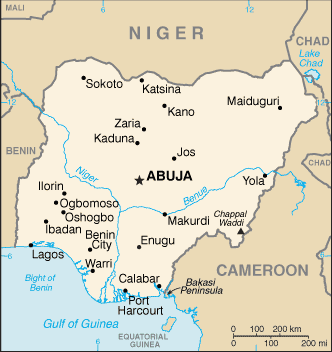Drug policy
- The National Drug Control Master Plan (2021- 2025) outlines Nigeria’s approach to dealing with a range of drug- related issues including illicit drug supply, drug demand reduction and control of licit substances.
- The Government of Nigeria has pursued a law enforcement approach to respond to the challenges of drug trafficking, production and use.
- There is a government unit responsible for prevention and treatment of alcohol and drug use disorders.
- The Nigeria Government works closely with specialist national agencies to ensure the effectiveness of policies implemented to control drug use.
- The strategy is based on a four pillar model and its overall aims are to: prioritise collaboration and consultation; address the differences between law enforcement and drug demand reduction; work alongside leading agencies to ensure effective management and implementation of the strategy; and promote monitoring and evaluation of the effectiveness of the strategy.
Treatment and Recovery Services
- The aim of treatment is total abstinence and there is no evidence of drug substitution treatment.
- Treatment in Nigeria primarily takes place in psychiatric hospitals though it is also offered in some private hospitals, in centres run by NGOs and by traditional healers.
-
Stigma and unavailability of treatment services are significant barriers in access to treatment for people with drug or substance use disorder
- Detoxification is offered as part of inpatient and outpatient treatment service
- Treatment often involves psychotherapy, counselling, educational, occupational and social rehabilitation and reconnection.
- Family members are encouraged to participate in the process of treatment.
- Screening and brief treatment is offered in primary care.
-
The Drug Use in Nigeria Survey 2018 highlighted gaps in meeting the treatment and care needs for people with drug use disorders.
-
Recovery is recognised as a subset of Treatment Services.
-
The majority of rehabilitation centres in Nigeria are run by religious groups, and are widely accepted by the medical community.
-
The NDCMP 2021-2025 makes provision for the review of existing guidelines and policies to reflect a unified treatment strategy that includes Recovery management.
Prevention Services
- Primary prevention activities are aimed at reducing the likelihood of young people initiating drug use and schools deliver preventative education activities.
- Behaviour change programmes are designed for youth, families and communities, with the hope that by providing information people will be more able to make informed decisions.
- Other prevention activity target groups include market women, road transport workers and artisans.
- Drug abuse prevention enlightenment programmes are delivered by print, electronic media and through lectures in schools, workplaces, youth camps and clinics.
- HIV services for people who inject drugs are limited.
- There are no needle exchange programmes or supervised injection facilities.

